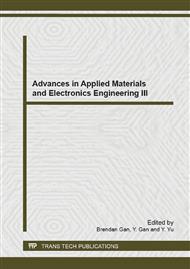p.637
p.642
p.647
p.651
p.655
p.659
p.663
p.669
p.673
Research on the Current Development Situation of the Third-Generation Search Engine
Abstract:
Taking the search engines mentioned in Related Documents, Alexa website and100 best alternative search engines as the basic samples, this paper selects 43 third-generation search engines according with the definition standard from 148 basic samples, and makes the investigation on selected third-generation search engines from two aspects of basic features and functions, and analyzes the investigation results from five aspects of types distribution, functions distribution , languages distribution , popularities distribution and searching effects evaluation.
Info:
Periodical:
Pages:
655-658
Citation:
Online since:
April 2014
Authors:
Price:
Сopyright:
© 2014 Trans Tech Publications Ltd. All Rights Reserved
Share:
Citation:


